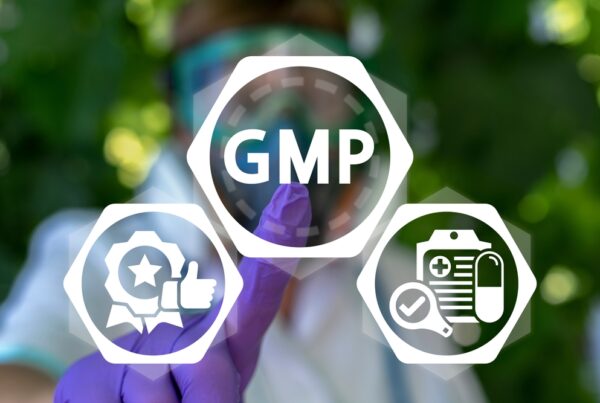
In an ever-evolving landscape of public health emergencies and biological threats, the importance of collaborative efforts between the public and private sectors cannot be overstated. Biomedical Advanced Research and Development Authority (BARDA), a component of the Administration for Strategic Preparedness and Response (ASPR), an arm of U.S. Department of Health and Human Services, has emerged as a crucial player in fostering partnerships to advance the development of medical countermeasures. In this blog, we will explore how BARDA collaborates with both the private and public sectors to drive innovation and preparedness.
Some examples, past and present, will be provided to illustrate the diverse partnerships BARDA has established with the private sector to drive innovation, accelerate development, and strengthen manufacturing and distribution capabilities for medical countermeasures.
Private and Public Sector Collaboration
BARDA recognizes that effective preparedness and response require bridging the gap between the private and public sectors. It actively seeks partnerships with pharmaceutical companies, biotech firms, academia, and other stakeholders to leverage their expertise, resources, and infrastructure. By pooling together knowledge and capabilities, BARDA aims to accelerate the development and deployment of medical countermeasures, ensuring the nation’s readiness against health threats.
Funding Opportunities: The Patch Forward Prize and Other DRIVes
The Patch Forward Prize is one of BARDA’s latest examples of a competitive award to promote R&D. In this case, $50M will be awarded to the first company to develop an efficacious mRNA vaccine delivered by microarray patch. Eligible vaccine targets include COVID-19, trivalent or quadrivalent seasonal influenza, and/or pandemic influenza A/H5N1. The stated goal of the award is to bolster preparedness for the next pandemic; it is hoped that a successful microarray patch will be both easier to administer than current vaccines and could potentially use less active ingredient, due to the uniquely immune-cell rich environment of human skin. Moreover, pre-filled syringes and vials often need cold-chain storage and transport, which for strategic reasons, would be extremely desirable to dispense with. Preclinical and clinical stage programs are launching in the spring of 2025.
The Patch Forward Prize is just one of several current, ongoing awards aimed at increasing the efficacy of medical countermeasures, part of BARDA’s DRIVe (Division of Research, Innovation, and Ventures) programs, which funds early-stage companies to develop life-saving innovation. Other programs within DRIVe include Type to Treat, ReBooT, ReDIRECT, Healing Lungs, and ImmuneChip+.
The Type to Treat program focuses on endotyping technology to identify patient subpopulations that are most likely to benefit from specific treatments. To put it another way, as the BARDA page notes, “administration of a specific treatment to a heterogeneous patient population contributes to heterogeneity of treatment effect and lower observed efficacy.” This is precisely what Type to Treat aims to avoid, by optimizing the match between treatment modality and patient. Funding for new applicants closes on 5/12/2025.
Healing Lungs takes aim at acute respiratory distress syndrome (ARDS) by opening up government funding for research in how to make treatment safer, more accessible, and less risky. This is noteworthy because the current standing of care, extracorporeal membrane oxygenation (ECMO), is only useful as a last resort due to its labor-intensive nature, high cost, lack of general availability, and high-risk profile (general mortality for adults is about 45% with ECMO treatment and side effects are serious). Research is focused on a 3-pronged approach that seeks to 1) use novel chemical entities to achieve blood oxygenation, 2) Improve ECMO components to lower the likelihood of clot formation, making it less risky, and 3) miniaturize ECMO and make it portable, with mobile treatment units being the ultimate goal. The closing date for this program is 5/16/2025.
ReDIRECT is another repurposing program but is based on a different paradigm from ReBooT. It isn’t aimed at biologics but against chemical weapons, and therefore the chief requirement is extremely rapid deployment of huge quantities of medical countermeasures. The program’s “Treat the Symptoms, not the Agent” approach means that the government is not looking for an exact antidote to every poison, but would be quite satisfied with treating the symptoms of as many victims of a chemical attack as possible, as quickly as possible, in a supportive manner. This necessitates repurposing existing drugs that are likely to be on hand. The funding was open to both academic institutions and companies, however, it just closed on 3/30/2025.
Collaborative R&D Expertise
BARDA promotes collaborative research and development initiatives to address public health challenges. By forming partnerships with private sector entities, BARDA facilitates the sharing of knowledge, expertise, and data. This collaborative approach allows for the pooling of resources and the utilization of diverse perspectives to tackle complex problems.
Pharmaceutical executives can benefit from BARDA’s collaborative research and development programs by accessing valuable insights from BARDA’s network of experts and researchers. By working together with BARDA, pharma companies can leverage their own capabilities while tapping into a broader ecosystem of knowledge and experience.
BARDA’s CARB-X National Defense Plan for Combatting Antibiotic Resistant Bacteria is extending its global connections, fostering new connections aimed at the increasingly worrisome number of antibiotic-resistant bacteria that present a major strategic challenge for the US and its allies. Its scope of work is far-reaching and mentions the extension of surveillance and evaluation of sources of resistance by 2023, optimization of antibiotic use in countries beyond the US, launching international antibiotic labs, and even assisting public and private sector organizations to combat antibiotic resistance.
Manufacturing and Distribution Support
BARDA’s partnerships extend beyond research and development. The agency actively supports the manufacturing and distribution of medical countermeasures. By collaborating with the private sector, BARDA aims to enhance domestic manufacturing capabilities, develop advanced manufacturing techniques, and establish robust supply chains. To that end, BARDA’s manufacturing and distribution support can be leveraged to scale up production, streamline processes, and ensure timely delivery of critical medical countermeasures. BARDA’s expertise in this area can help companies navigate regulatory requirements, optimize manufacturing practices, and address any challenges related to production and distribution.
Emergent BioSolutions
BARDA collaborated with Emergent BioSolutions to enhance domestic manufacturing capabilities for medical countermeasures, including vaccines and therapeutics. BARDA provided funding to support the expansion of Emergent BioSolutions’ manufacturing facilities and the establishment of a Center for Innovation in Advanced Development and Manufacturing. This partnership aimed to strengthen the nation’s capacity to rapidly respond to public health emergencies by scaling up the production and distribution of critical medical countermeasures. Some of Emergent’s awards have been for its’ novel anthrax vaccine AV909, treatment for cyanide poisoning, and botulism antitoxin, to name just a few.
Conclusion
BARDA’s commitment to fostering public-private partnerships has significantly contributed to the development of medical countermeasures and strengthened the nation’s preparedness against public health emergencies. By actively engaging with the private sector, BARDA catalyzes innovation, accelerates research and development, and facilitates the manufacturing and distribution of essential medical countermeasures.
Pharmaceutical executives have a unique opportunity to collaborate with BARDA, accessing funding, expertise, and resources that can expedite the development of life-saving products. By forging partnerships with BARDA, the private sector can play a pivotal role in safeguarding public health and building a resilient healthcare system for future challenges. Together, public and private sectors can make a profound impact in protecting and improving the well-being of communities worldwide.



